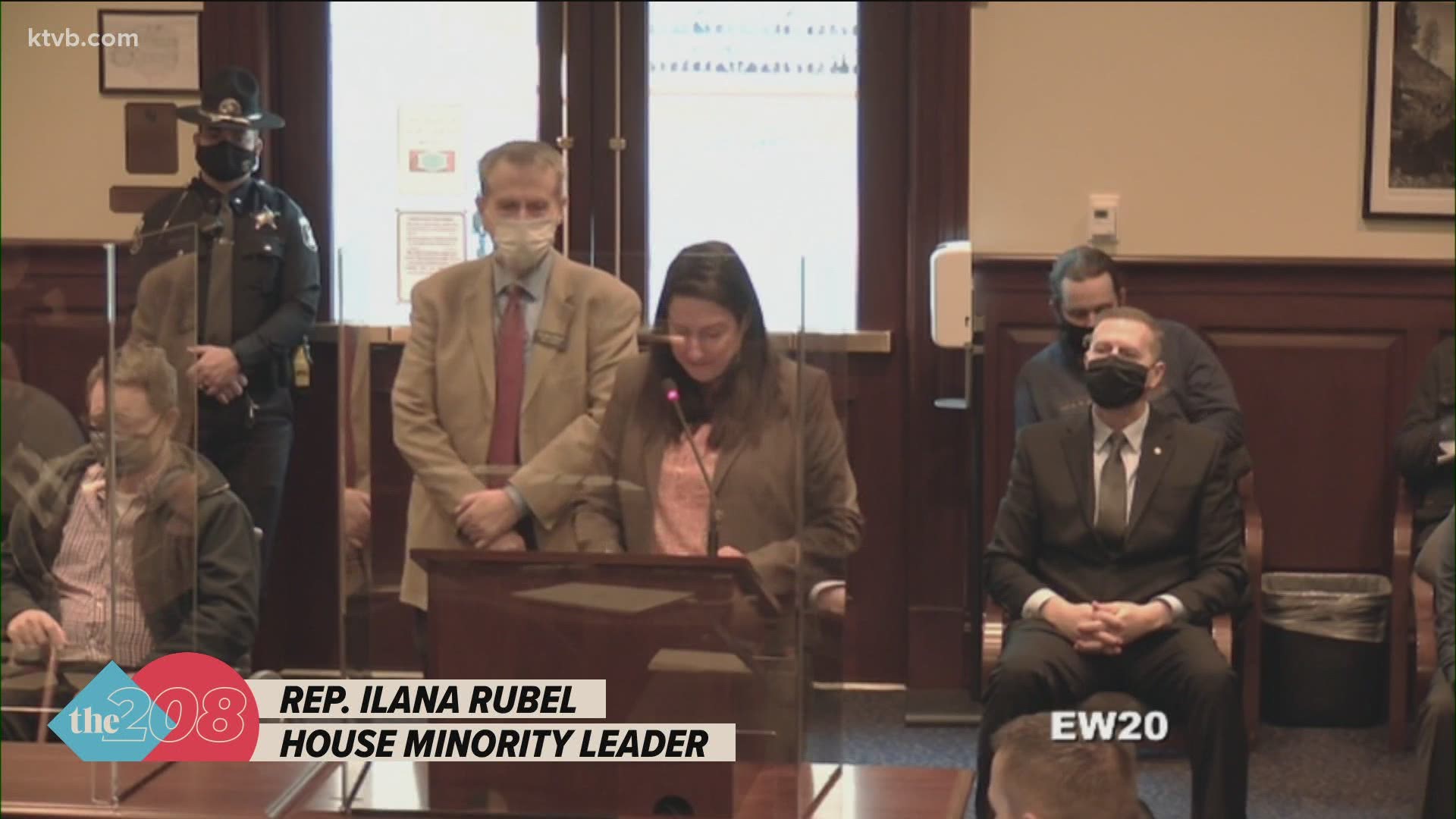BOISE, Idaho — A bipartisan effort to allow the limited use of medical cannabis in Idaho was introduced in the Idaho House on Monday.
The bill, co-sponsored by Rep. Ilana Rubel (D-Boise) and Rep. Mike Kingsley (R - Lewiston), would legalize marijuana for medical purposes under a very narrow scope.
The legislation spans over 50 pages and is very specific, only allowing medical cannabis treatment for people 21 and over dealing with certain illnesses including cancer, ALS, AIDS, wasting syndrome, Crohn’s disease, epilepsy, multiple sclerosis, debilitating seizures, and terminal illness.
“I think this bill is very well tailored to just helping the sick and only the sick getting exactly what they need,” Rubel said. “This is not something where someone could just be walking around with a baggie of marijuana and say 'hey man it’s medical,' not at all. This would look and basically be treated like opioids.”
The idea behind the legislation is to provide an alternative for people who have traditionally been prescribed opioids to deal with pain. Rubel said she initially wasn’t going to take on the idea this session until she learned more about it recently from an Idaho advocate.
Retired Air Force Senior Master Sgt. Jeremy Kitzhaber is terminally ill with stage 4 cancer linked to handling hazardous materials while serving in the military. He gave a comprehensive presentation to lawmakers Monday morning about the legislation and the relief he says cannabis could provide to people like him dealing with extremely painful conditions.
Kitzhaber told the committee he has had specialty doctors out of state that wanted to prescribe him medical cannabis because of the good it would do for him but can’t because of Idaho law.
“He got this pretty clearly through the work he did in the Air Force working with radioactive materials and his friends lost limbs serving our country," Rubel said. "It just felt very wrong to me that when they need us now, when they need us to make sure they can get the medication they need so they aren’t on these deadly opioids, I think we need to stand up and help them.”
The legislation only allows those with specific conditions to get a very limited 30-day supply or 60-day supply of medical cannabis if a state-certified pharmacy is not within 100 miles of their home. The legislation outlines there could only be up to 28 medical cannabis pharmacies throughout Idaho that would be authorized by the Board of Pharmacy to dispense medical cannabis.
Those seeking to get medical cannabis would need to be approved by a qualified medical practitioner to apply for a medical cannabis card. Medical cannabis cards would be valid for only the period recommended by their medical practitioner, up to a maximum of one year. After that patients would need to seek renewal approval for their card. Qualifying medical practitioners would be those who are currently authorized to prescribe Schedule 2 controlled substances in Idaho.
If a medical cannabis cardholder sold or gave away their prescription cannabis to a non-cardholder, they would be guilty of a criminal offense under existing Idaho law. If convicted, the Idaho Department of Health and Welfare would permanently revoke their medical cannabis card. The legislation adds that no growing, cultivation, or production of cannabis in Idaho would be allowed.
Medical cannabis would also be capped at 22% THC. Rubel says that cap makes it clear that this is about providing pain relief, not a way for people to get high.
It was pointed out during the testimony Monday morning that about 80% of Idahoans live less than about two hours away from somewhere they could legally buy marijuana. Kitzhaber is well aware of that but said, for him personally and others he knows battling painful illness, they want to get medicine legally.
“What I’m trying to do with this is to make it for those of us who need it for medical reasons don’t have to risk a criminal prosecution, and I think there is a majority, if not all of the patients who actually want this for a legitimate treatment are going to do that in a law abiding way,” Kitzhaber said.
Creating a bill that is narrow, specific, and only allows for small amounts of medical cannabis would make it undesirable to those that would try and abuse the system, according to Rubel.
“It is not a slippery slope and I think we can do this responsibly and make it available just medically," she said. "It would be so hard to get this and to abuse it. This is not going to be the thing that opens the door to potheads everywhere."
Join 'The 208' conversation:
- Text us at (208) 321-5614
- E-mail us at the208@ktvb.com
- Join our The 208 Facebook group: https://www.facebook.com/groups/the208KTVB/
- Follow us on Twitter: @the208KTVB or tweet #the208 and #SoIdaho
- Follow us on Instagram: @the208KTVB
- Bookmark our landing page: /the-208
- And we also turn each episode into a podcast or Podbeam
- Still reading this list? We're on YouTube, too:

